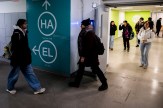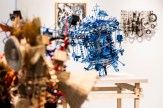Northeastern grads engineer tube-bending prototypes to streamline electricians’ work
Tubender, which creates multiple bends on a continuous length of tubing, was created as a senior capstone engineering project.
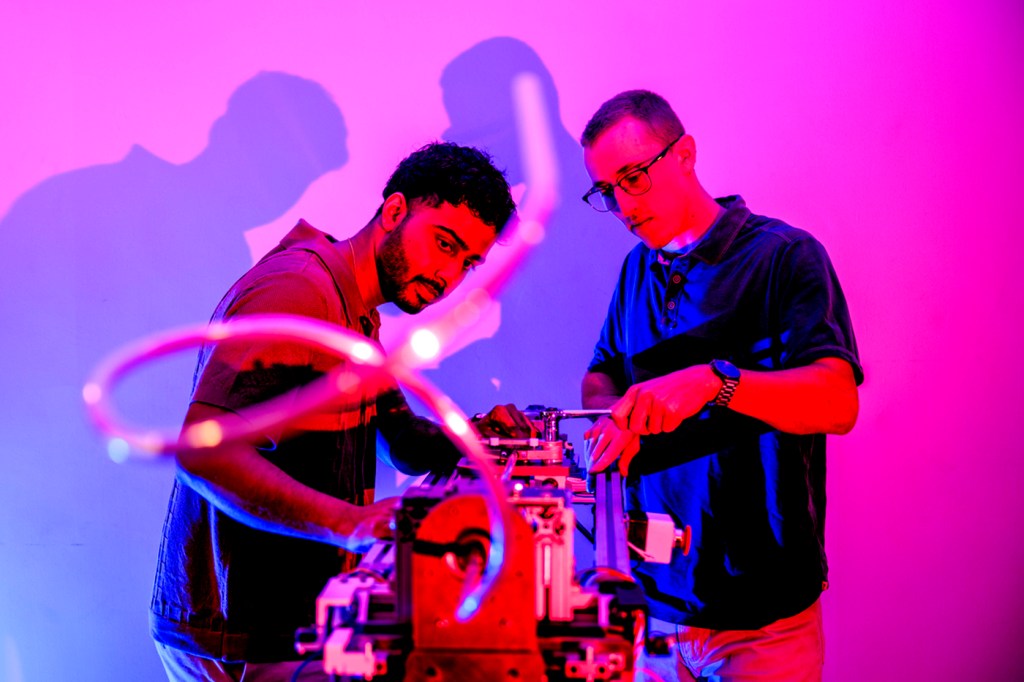
Electricians install metal conduit in buildings every day to protect electrical wiring from damage and mitigate fire hazards.
As they route the wiring, electricians need to bend the conduit, but there are no quick and easy solutions to do this on site. They can use a manual tube bender or a simple-powered device to make a single bend at a time — or they can ship the conduit to a prefabrication shop that bends and cuts it to specification.
These approaches are inefficient and wasteful, say Jaison Patel and Joshua Baum, mechanical engineers and recent Northeastern University graduates, who are working to bring a programmable and portable tube-bending machine to market.
Their startup company that is developing the machine is called Tubender. The original prototype, which creates multiple bends on a continuous length of tubing, was created as a senior capstone engineering project.
“You get to program in all of the bends that you want to do in the tube,” Patel says. “You start the program, and it creates all those bends in one go, so you don’t have to keep readjusting the tube. There’s a lot less room for error.”
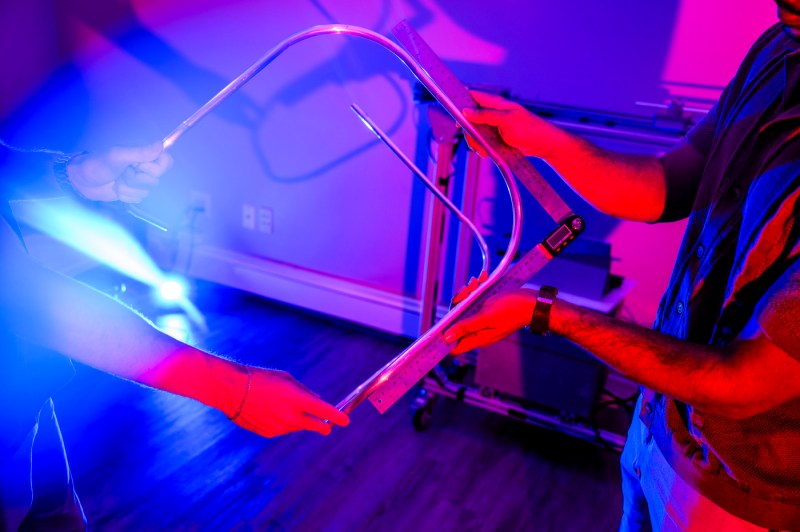
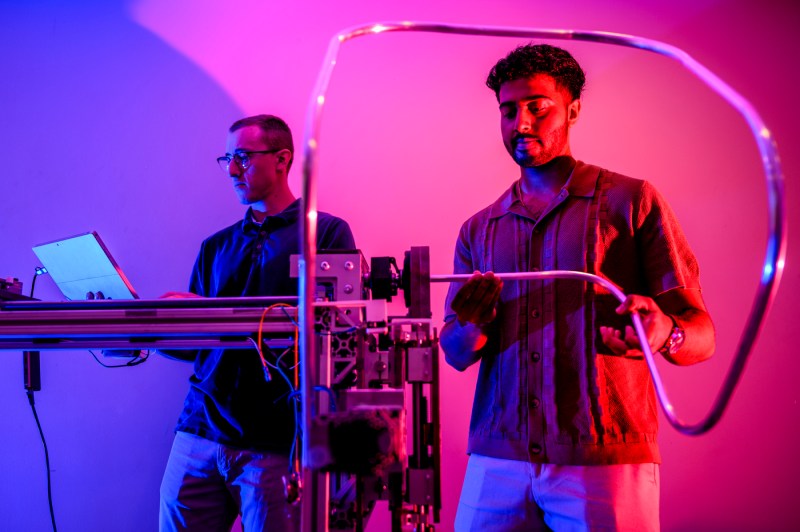
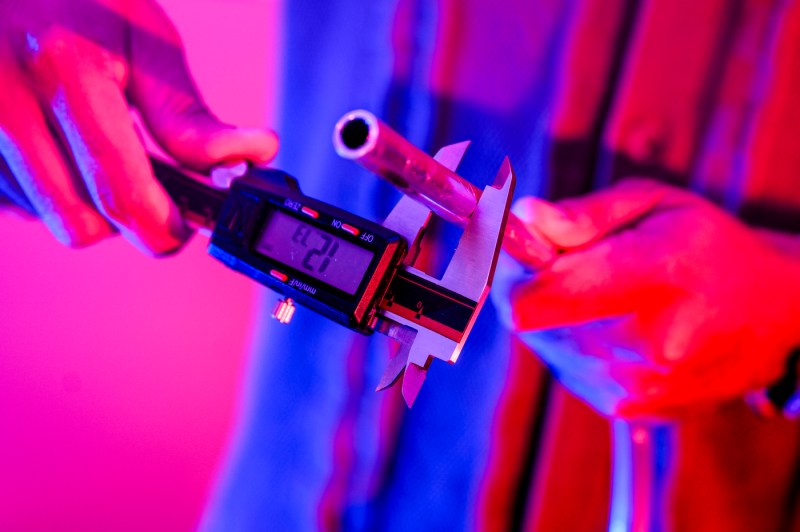
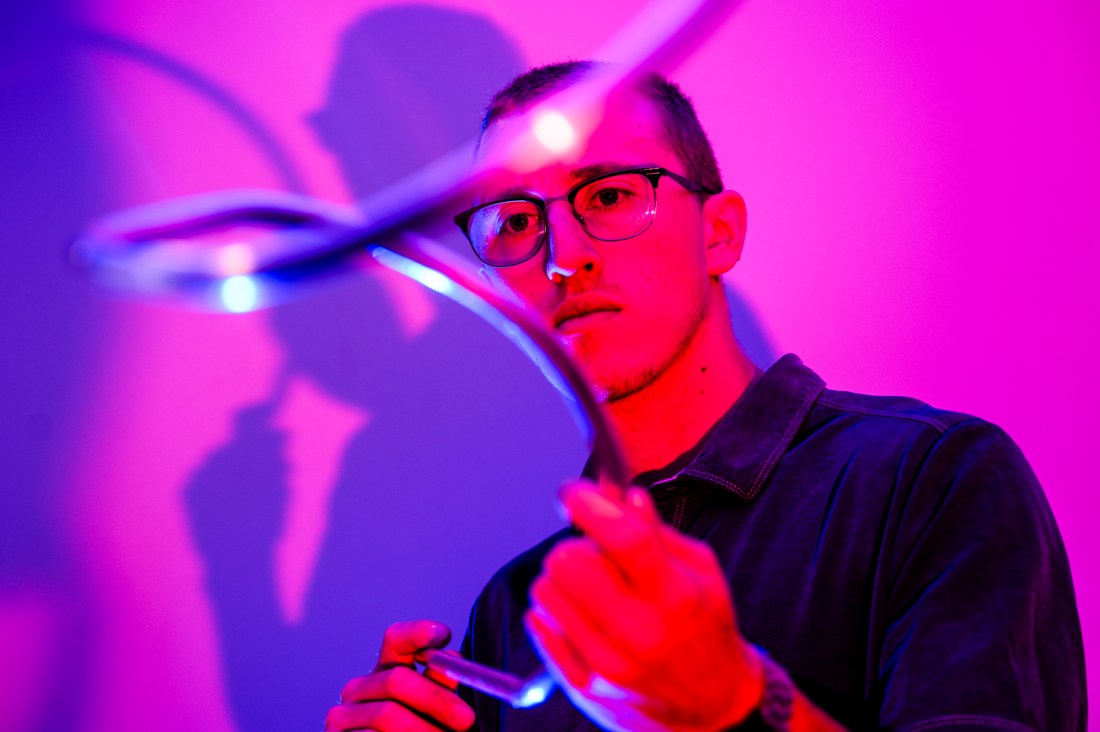
Metal tubing has a lot of applications, Patel says. In the future, he says, their machine can potentially be used in other fields, such as by the automotive, aerospace, architecture, furniture, building or shipbuilding industries.
“We can currently already bend copper, aluminum and steel [tubes]. We’re not really limited on the material,” he says.
The first prototype was created by Patel and four other engineering students in the fall of 2022. After they completed the capstone project, most of the students moved on. But Patel saw potential in the idea beyond the classroom and pursued it as a business.
Patel met Baum, a 2023 Northeastern mechanical engineering graduate, through a mutual friend, and together they co-founded Tubender.
“Jaison has been shifting more into the business development role and running the whole operations of the company,” Baum says. “That’s why he brought me on to take care of the technical side.”
In reality, both are doing a little bit of everything, he says, as there is a lot to do at this stage of their business.
The partners decided to focus on targeting commercial electricians.
For the last year they have been developing a modified and improved second prototype. Unlike 20-foot stationary machines at prefabrication shops, the Tubender is about 5 feet long and can fit into the back of a pickup truck.
“With our machine, they can bend everything on site. They have access to that technology on site, instead of having to do all that back and forth with shipping the tubes,” Patel says.
Featured Posts
Tubender’s journey has been supported by Northeastern’s robust entrepreneurial ecosystem. The startup has benefited from several programs and resources, including the Husky Startup Challenge, where it won initial funding, and Generate, a student-led product development studio that helped with software and hardware development.
Recently, Tubender secured a grant from the Alpha Fund, an advanced prototyping fund at Northeastern open to graduate students, graduates, staff and faculty.
The next critical step for the company will be to get the prototype into the hands of potential users — commercial electricians. The feedback from these early adopters will be crucial in refining the product and ensuring its commercial viability.
“We’re not trying to be the cheapest solution. We’re trying to be the best,” Patel says.
As they continue to build their business, Patel and Baum are also gearing up to attract future investors.
While at Northeastern, Baum’s co-ops were at a particulate measurement solutions manufacturer Auburn FilterSense as a manufacturing engineer, and at a California-based startup, Takachar, where he worked closely with the CEO on turning excess biowaste into fuel.
“That was really where I fell in love with the idea of working at a startup,” Baum says. “And when I got the opportunity to meet Jaison and decided to start my own company, there was no hesitation there.”
Patel completed three co-ops — as a custom product design engineer at a mechanical testing machines manufacturer, Instron; at a metal 3D printing company, Desktop Metal; and at NASA Jet Propulsion Laboratory, where he worked on designing parts for the landing legs of the Sample Retrieval Lander for the Mars Sample Return mission.
“I liked all the experiences and they were very valuable, but they taught me what I didn’t love to do,” Patel says. “I just like to work in a smaller team, move fast and wear a bunch of hats.”
“We really believe in what we’re doing right now and know that we can take this really far,” he says.






